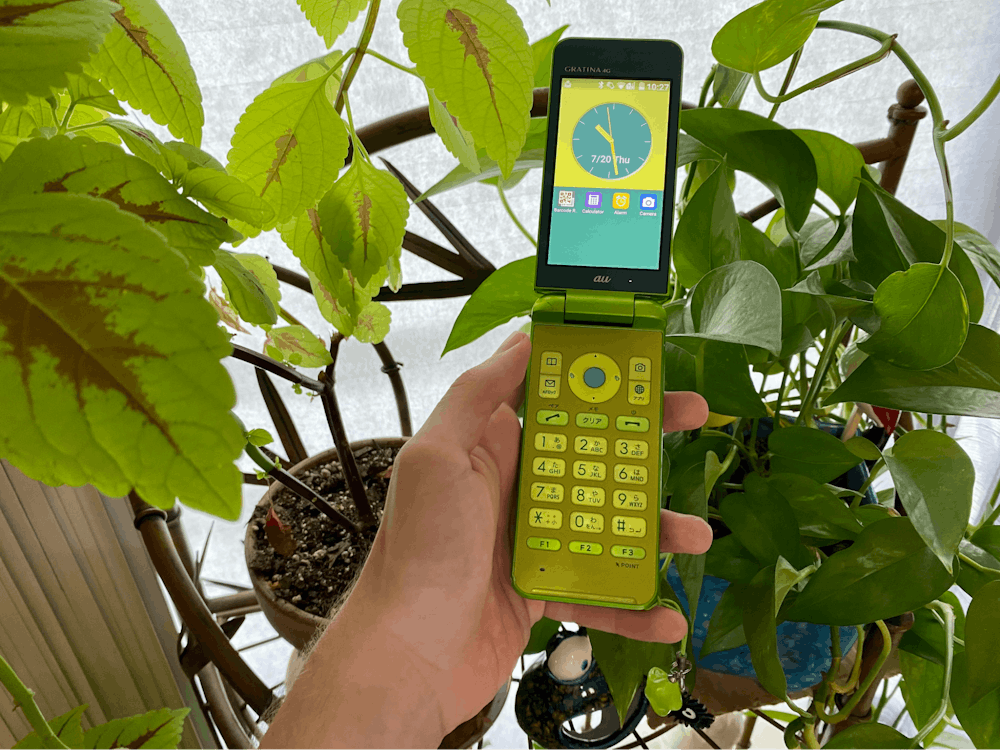Dispatches at The Prospect are brief reflections from our writers that focus on their experiences during the summer.
It started the week before Dean’s Date. I found myself lying in my bed and doomscrolling on Instagram Reels, which I used because I promised myself I wouldn't use TikTok this year (I realize this is a ridiculous justification). I was stuck repeating the same cycle: consuming content, feeling bad about it, promising I would do better next time, and then subconsciously opening Instagram. As I was writing that sentence, I got a notification and then scrolled through Threads for 10 minutes until I remembered that I was writing this article. I clearly had a problem.
Then, I saw an influencer touting a solution: buy a flip phone and disconnect from the constant dopamine rush of a smartphone. This concept was infatuating to me, as it satiated my need to kick my phone addiction while also playing on my nostalgia for a childhood where my only connection to the outside world was a T9 keypad and 100 TracFone minutes. So, a few weeks later when I touched down in my hometown, a shiny green flip phone was waiting for me.
For a while, it worked. Before, my smartphone was a constant weight in my pocket, a little morsel of escapism that I could pull out whenever I was bored or anxious. Without that crutch, I was forced to interact with my environment. I felt uncomfortable at first but grew to appreciate how grounded and in-the-moment I became. For those moments I felt the need to connect, I was forced to be intentional about my choices. Did I really have enough time to wait for this article to load on a slow 2G network? Was that wait worth it? I began to miss my phone less and enjoy the world more.
Not everyone had the same positive outlook that I did. My roommate, mid-conversation, texted me, “Why the hell do you not have an iPhone anymore?” My boss expressed how frustrating it was to communicate after her child also switched to a flip phone. My coworker was forced to call my boss at 7 a.m. because I couldn’t access Google Maps or our scheduling platform. For all the inconveniences the phone had caused, I still felt it was worth it to me if it helped me kick my content consumption habit.
As much as I wanted it to work, its effectiveness varied. When I was outside of my house, the flip phone was a great deterrent to distractions. I took it to a TWICE concert in Atlanta, five hours away. I enjoyed the concert more because I wasn’t texting friends or obsessed with getting perfect video angles. When out, I felt more grounded in reality. But back at my house, I fell into my old ways. Soon, I was scrolling through Instagram on my laptop and eating dinner with my iPad like a 7-year-old with inattentive parents. Nothing about my habits improved because I didn't work to change them. I just hoped that using a more restrictive phone would do the hard part for me.
But that's not how things work. What I needed was to fundamentally change how I handled self-control, but I wanted to make a visual sacrifice, to show the world and myself that I could be better without having to disconnect myself from something that I knew was hurting me. Buying a flip phone is easy. Making lasting change is hard. It takes longer than a single summer when I romanticize the idea of being disconnected. I wanted it to be easy, to walk into the sunset, bright green flip phone walking by my side. But that would ignore the reality I lived in. Sure, I could throw away my iPad and laptop, run into the woods and never be seen again. But I would still be the same person, craving more distractions from reality, refusing to live in the moment.
Recently, friends have been sending me this article about Michael Cera using a flip phone and being unable to join the “Barbie” movie groupchat. Between wellness influencers touting the benefits of less screen time and a growing trend towards rejecting technology, I was convinced that this was my path forward. But the idea that I can just eschew technology instead of building a better relationship with it is silly. Michael Cera can get by without a smartphone because he has an assistant. But it doesn't make sense for everyday people to just give up everything that a smartphone provides. But hey, if you are Michael Cera, go get your flip phone — you might end up happier. Sadly, I am not Michael Cera, so until I get an assistant or some therapy, I don’t see flipping in my future.
Vitus Larrieu is an assistant Podcast editor for the ‘Prince.’
Self essays at The Prospect give our writers and guest contributors the opportunity to share their perspectives. This essay reflects the views and lived experiences of the author. If you would like to submit a Self essay, contact us at prospect@dailyprincetonian.com.









